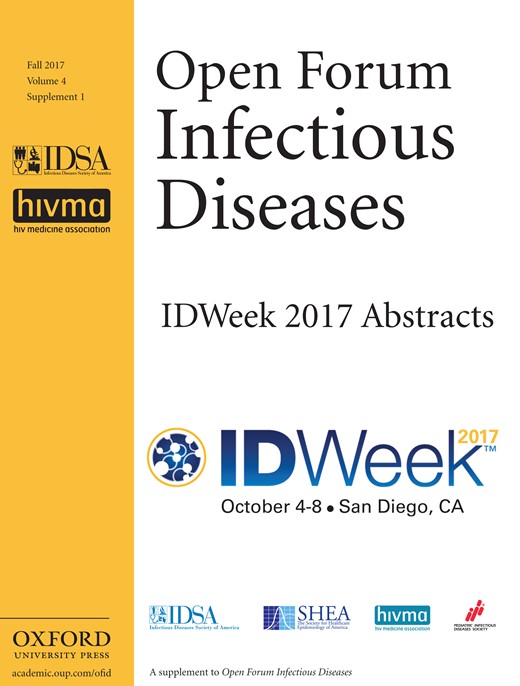-
PDF
- Split View
-
Views
-
Cite
Cite
Sylvia Becker-Dreps, Anne M Butler, Leah J McGrath, Kim A Boggess, David J Weber, Dongmei Li, Michael G Hudgens, J Bradley Layton, Effectiveness of Prenatal Tdap Immunization in the Prevention of Infant Pertussis in the United States, Open Forum Infectious Diseases, Volume 4, Issue suppl_1, Fall 2017, Page S68, https://doi.org/10.1093/ofid/ofx162.163
Close - Share Icon Share
Abstract
The Centers for Disease Control and Prevention recommends that all pregnant women in the United States receive tetanus-diphtheria-acellular pertussis (Tdap) immunization to prevent infant pertussis. While the vaccine may be administered at any time during pregnancy, the recommendations define administration at 27 to 36 weeks of gestation as optimal timing to prevent infant pertussis. These recommendations were primarily based on immunogenicity studies. The objective of this study was to examine the clinical effectiveness of prenatal Tdap, and to understand whether effectiveness varies by gestational age at immunization.
We performed a nationwide cohort study of pregnant women with deliveries in 2010–2014 and their infants. Commercial insurance claims data were used to identify receipt of Tdap immunization in the pregnant women, and hospitalizations and outpatient visits for pertussis in their infants until 18 months of age. To address the difficulties in diagnosing pertussis, we also employed a “probable pertussis” definition, as an inpatient or outpatient diagnosis of pertussis, plus antibiotic treatment with a macrolide or trimethoprim/sulfamethoxazole within 7 days of diagnosis. Pertussis occurrence was compared between infants of mothers who received prenatal Tdap (overall, and stratified by gestational age at administration) and infants of unvaccinated mothers.
There were 675,167 mother–infant pairs included in the cohort. Among infants whose mothers received Tdap at any time during pregnancy, the rate of pertussis hospitalization was 50% lower (adjusted hazards ratio (HR) = 0.50, 95% CI: 0.23, 1.09), and the rate of probable pertussis was 42% lower (HR = 0.58, 95% CI: 0.38, 0.89) than infants of unimmunized mothers. Pertussis rates were also lower for infants whose mothers received prenatal Tdap during the third trimester. Infants whose mothers received Tdap before the third trimester also tended to have lower rates of pertussis, but these estimates were imprecise.
Infants of mothers who received prenatal Tdap experienced half the rate of pertussis as compared with infants of unimmunized mothers. Our results do not provide evidence to support changing the currently recommended timing of Tdap administration in pregnancy.
S. Becker-Dreps, Pfizer: Consultant and Grant Investigator, Consulting fee and Research grant; A. M. Butler, Astra Zeneca: Consultant, Support to institution; Amgen: Grant Investigator, Investigator initiated grant to institution; D. J. Weber, Merck: Consultant and Speaker’s Bureau, Consulting fee and Speaker honorarium; Pfizer: Consultant, Consulting fee; J. B. Layton, Merck: Member of Center for Pharmacoepidemiology, Support to institution; GlaxoSmithKline: Member of Center for Pharmacoepidemiology, Support to institution; UCB Biosciences: Member of Center for Pharmacoepidemiology, Support to institution
Author notes
Session: 278. Pneumococcal and Pertussis Vaccines
Saturday, October 7, 2017: 2:00 PM
- antibiotics
- pregnancy
- consultation
- centers for disease control and prevention (u.s.)
- consultants
- disclosure
- gestational age
- immunization
- infant
- inpatients
- mothers
- outpatients
- pharmacoepidemiology
- pregnancy trimester, third
- trimethoprim-sulfamethoxazole combination
- vaccines
- diagnosis
- diphtheria
- macrolides
- prenatal care
- tetanus
- pertussis
- commercial insurance
- prevention
- immunogenicity





Comments